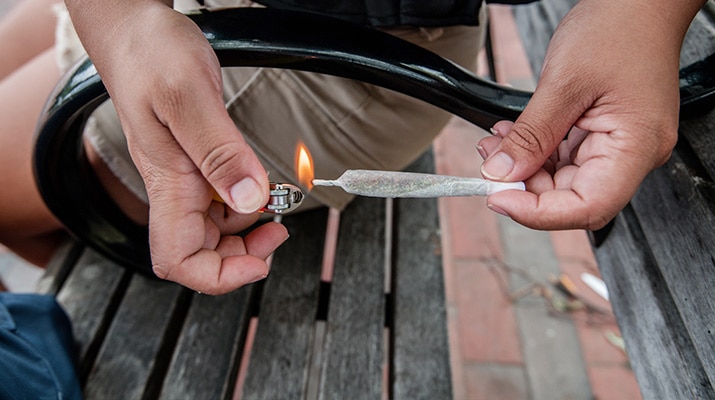
The Marijuana Policy Project (MPP) has released a new report on tax revenue generated from state-legal, adult-use cannabis since sales began in 2014. The report includes the tax structure for each state, total revenue generated each year, and additional information about how the revenue is being distributed to public services and programs.
Eighteen states have enacted laws legalizing, taxing, and regulating cannabis for adults 21 and older. Eight of the laws passed in 2020 or 2021, and in seven of those states, licensing and tax collection have not yet begun.
“Legalizing cannabis for adults has proven to be a wise investment,” said MPP. “Not only are states seeing the benefits of a regulated market and far fewer cannabis-related arrests — they’re benefitting in a direct, economic way, too. Before legalization, money from cannabis sales flowed through an underground market that endangered public safety and disrupted communities. But now, we see all across the country that revenue from the legal cannabis industry is supporting schools, health care, and a range of other beneficial public programs. It’s no wonder that residents in legalization states overwhelmingly see legalization as a success.”
The report’s key findings include:
- As of May 2021, states reported a combined total of $7.9 billion in tax revenue from legal, adult-use cannabis since sales began in 2014, with $2.7 billion in 2020 alone.
- In 2020, California collected more than $1 billion in adult-use cannabis tax revenue, a 62% increase compared to 2019.
- State officials in Washington reported that revenue from retail cannabis sales outpaced alcohol tax revenue in the 2019 and 2020 fiscal years, despite the fact that many more adults consume alcohol than cannabis.
States with legal, adult-use cannabis allocate a portion of cannabis tax revenues for social services and programs. Highlights include:
- Alaska: Half of all adult-use cannabis tax revenue is invested in the Recidivism Reduction Fund and supports reentry programs for currently and formerly incarcerated individuals.
- California: A significant portion of cannabis tax revenue is directed to local nonprofit programs that benefit people adversely impacted by punitive drug laws. More than $100 million has already been distributed to community groups.
- Colorado: $404.5 million of the total revenue generated from cannabis taxes has been dedicated to improving the state’s public school system.
- Illinois: In addition to investing 20% of adult-use cannabis tax revenue into mental health services, the state directs 25% of the funds to the Recover, Reinvest, and Renew Program, which supports local organizations in developing programs that benefit disadvantaged communities.
- Michigan: Nearly $11.6 million will be sent to the School Aid Fund for K-12 education.
- Oregon: Forty percent of cannabis-related tax revenue is distributed to public schools and 25% to mental health and treatment programs.
- Washington: For every $1 billion in revenue collected from the cannabis sales taxes, nearly $600 million is funneled into public health initiatives, including a fund that provides health insurance for low-income families.
The full report is available here: www.mpp.org/revenue.
 AZ Marijuana Arizona Marijuana Info
AZ Marijuana Arizona Marijuana Info






